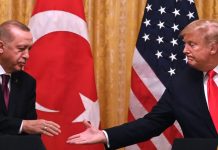Amidst a number of economic crisis in India comes a survey claiming that Indians are fast losing faith in Prime Minister Narendra Modi’s economic policies. As the election year is approaching, the American think-tank deduces that Indians feeling confident about the economy has fallen down drastically.
- Is Taiwan Providing Vital Intelligence To India on Chinese Movements?
- How To Become a Billionaire – Learn From India and China
This year, just 56% of those surveyed by Pew Research Center said the current situation of the economy is good, down from 83% in 2017. The 27-percentage-point drop was the steepest fall recorded among the 27 nations studied for Pew’s Spring 2018 Global Attitudes survey. In India, the organisation interviewed 2,521 adults between May 23 and July 23 this year.
Respondents who say the current economic situation is good:
| Country | 2017 (%) | 2018 (%) |
|---|---|---|
| India | 83 | 56 |
| Philippines | 78 | 73 |
| Indonesia | 63 | 65 |
| South Africa | 45 | 35 |
| Kenya | 43 | 43 |
| Nigeria | 41 | 45 |
| Mexico | 28 | 28 |
| Tunisia | 19 | 8 |
| Brazil | 15 | 9 |
Bruce Stokes, director of Global Economic Attitudes at Pew, writes in the report that in 20 countries, including India, those who support the governing party were more likely to say that the current economic situation was good, showing how economic perceptions are filtered through a biased lens. In India, 72% of those respondents who supported the governing party believed the current economic situation was good, while among those who did not the figure was 48%.
Although, 66% of the total respondents in India also said they believed children would grow up to be financially better off than their parents.
“Indian GDP per capita has increased 266% since 1990, and such good fortune in about a generation may explain why two-thirds of adults (66%) believe young Indians will grow up to be better off financially than their parents,” Stokes writes.
For one, the rupee now ranks among Asia’s worst-performing currencies, having lost 11% of its value against the US dollar this year. Dragged down by rising crude oil prices, a widening current account shortage, and the effects of trade wars driven by US president Donald Trump, India’s currency has shown little sign of improvement, though the government has launched efforts to stem the slide.
Related to this is India’s fuel price crunch. Petrol prices are floating near or above the Rs. 90/per litre mark in many cities and diesel prices have also swelled this year. While some state governments have offered relief by cutting prices, the central government has so far avoided reducing the excise duty, which, together with other taxes and cuts, accounts for almost 50% of fuel prices in India.
All this comes after mounting concerns over job creation in India, which is expected to have the largest working-age population in the world by 2027. While a heated debate continues over how many jobs have actually been created in PM Modi’s tenure, several key sectors, including agriculture, have strived in recent years, sparking fears of India’s demographic dividend soon turning into a disaster.
But Indians are almost overwhelmingly satisfied that things are better than they used to be. Up to 65% of the respondents in the survey said the financial situation of average Indians had grown from 20 years ago, far more than the proportion recorded in all the advanced economies, including the US, UK, and Japan.




